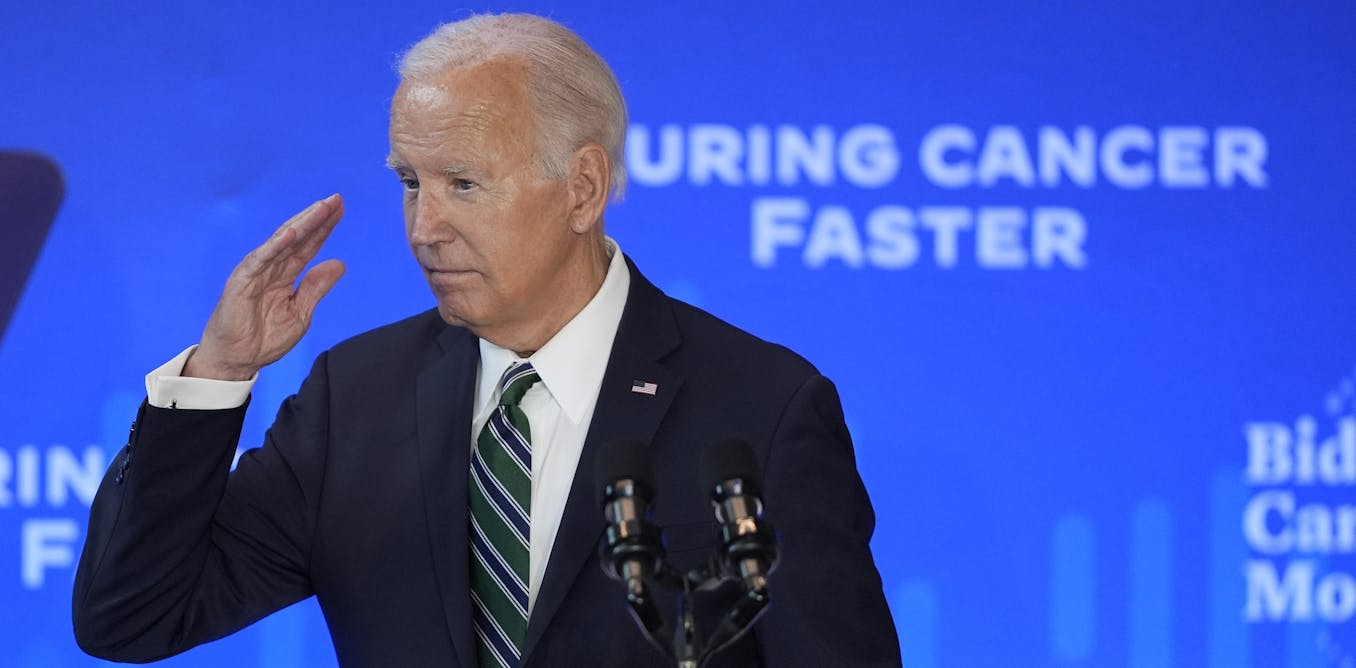Amid increasing worries more than the outcomes of social media on teen psychological overall health, on June 17, 2024, U.S. Surgeon Standard Vivek Murthy termed for warning labels to be additional to social media platforms, very similar to surgeon standard warnings on cigarettes and alcoholic beverages.
Murphy’s warning cited investigation exhibiting that teens who use much more than 3 hours of social media a day deal with double the possibility of mental wellbeing issues.
This comes a 12 months after Murphy issued a big public advisory in excess of the links between social media and youth mental wellbeing.
As a specialist in ingesting ailments and anxiety, I on a regular basis work with customers who practical experience taking in dysfunction signs, self-esteem difficulties and anxiety linked to social media.
I also have firsthand working experience with this subject: I am 16 decades write-up-recovery from an taking in dysfunction, and as a teen, I grew up when folks have been beginning to greatly use social media. In my look at, the effect of social media on mental health and fitness, particularly on food plan and work out patterns, are unable to just be mitigated with a warning label. Nonetheless, it is an significant starting off point for boosting awareness of the harms of social media.
https://www.youtube.com/view?v=AwoiPMDEj5c
Back links, associations and causal consequences
Gurus have very long suspected that social media may possibly be playing a job in the developing mental health crisis in youthful people. However, the surgeon general’s 2023 warning was a single of the very first govt warnings supported by robust investigation.
Critics of the simply call for warning labels argue that it oversimplifies a complicated difficulty and that restricting social media obtain in any way would do additional hurt than fantastic. Some supporters sense that it is a move in the ideal direction and considerably much less restrictive than making an attempt to start off with more popular privacy restrictions.
And so much, phone calls for action over regulating social media have fallen flat.
Scientists are constrained to only studying associations, which make causal one-way links challenging to create. But there are quite a few scientific tests that do exhibit a relationship between viewing media and worsened self-esteem, overall body image and psychological overall health.
On top of that, there is scientific knowledge that has demonstrated the usefulness of like warning labels to deter use of substances these types of as tobacco and alcohol.
Nonetheless, the system of warning labels has been employed for having dysfunction content and digitally altered illustrations or photos on the online, with combined outcomes. These experiments confirmed that the warning labels do not lower the detrimental impression of the media on entire body graphic. Some of the research even observed that the warning labels could possibly enhance human body and look comparisons, which are imagined to be important causes why social media can be harmful to self-esteem.
Likely harms
Investigate shows that images of beauty as depicted in movies, social media, tv and journals can guide to psychological disease, troubles with disordered consuming and human body graphic dissatisfaction.
Entire body dissatisfaction among young children and adolescents is commonplace and has been connected to lessened excellent of daily life, worsened temper and unhealthy ingesting practices.
The mental wellbeing of adolescents and teens has been declining for the earlier decade, and the COVID-19 pandemic contributed to worsening youth psychological wellbeing and brought it into the highlight. As the mental well being crisis surges, researchers have been taking a close appear at the job of social media in these rising mental health and fitness concerns.
The execs and cons of social media
About 95% of small children and adolescents in the U.S. amongst the ages of 10 and 17 are employing social media pretty much consistently. A 2023 analyze found that teens shell out about 5 hours for each working day on social media.
Study has shown that social media can be useful for acquiring community aid. Having said that, reports have also demonstrated that the use of social media contributes to social comparisons, unrealistic anticipations and damaging mental well being results.
In addition, those who have preexisting psychological health ailments have a tendency to spend much more time on social media. Men and women in that group are additional very likely to self-objectify and internalize the thin entire body excellent. Women and people today with preexisting overall body picture concerns are extra possible than other folks to sense even worse about their bodies and themselves after they commit time on social media.
A breeding floor for having ailments?
A latest review located that, as with mass media, the use of social media is a chance issue for the improvement of an eating dysfunction, human body image dissatisfaction and disordered having. In this assessment, social media use was proven to add to adverse self-esteem, social comparisons, lowered emotional regulation and idealized self-presentation that negatively motivated overall body impression.
Yet another study, identified as the Dove Self-Esteem Undertaking, revealed in April 2023, found that 9 in 10 kids and adolescents ages 10 to 17 are uncovered to harmful magnificence content on social media, and 1 in 2 say that this has an influence on their psychological health and fitness.
Scientists have also located that enhanced time at residence during the pandemic led to a lot more social media use by younger men and women and for that reason much more exposure to poisonous physique graphic and dieting social media articles.
Though social media on your own will not result in having disorders, societal beliefs about attractiveness, which are amplified by social media, can contribute to the enhancement of having diseases.
https://www.youtube.com/check out?v=VN6st_4_FDg
‘Thinspo’ and ‘fitspo’
Toxic splendor benchmarks on line include the normalization of cosmetic and surgical treatments and pro-taking in-problem information, which encourages and romanticizes having issues. For occasion, social media web pages have promoted trends such as “thinspo,” which is focused on the slender great, and “fitspo,” which perpetuates the belief of there staying a perfect system that can be realized with dieting, nutritional supplements and abnormal training.
Study has shown that social media content encouraging “clean eating” or following a diet regime based on pseudoscientific claims can guide to obsessive conduct all over food stuff. These unfounded “wellness” posts can lead to fat cycling, yo-yo dieting, chronic tension, entire body dissatisfaction and better likelihood of muscular and slender-suitable internalization.
Some social media posts function pro-ingesting-dysfunction content material, which right or indirectly encourages disordered ingesting. Other posts advertise deliberate manipulation of one’s human body, applying damaging quotes these as “nothing tastes as excellent as skinny feels.” These posts offer a untrue perception of link, making it possible for customers to bond above a shared goal of losing excess weight, altering their physical appearance and continuing designs of disordered ingesting.
Although younger individuals can normally figure out and comprehend poisonous beauty advice’s results on their self-esteem, they could continue to keep on to engage with this articles. This is in part due to the fact mates, influencers and social media algorithms really encourage individuals to follow sure accounts.
Telephone-absolutely free zones
Modest techniques at home to slash down on social media consumption can also make a big difference. Mother and father and caregivers can build phone-cost-free intervals for the family members. Illustrations of this contain putting telephones absent whilst the family members watches a movie with each other or for the duration of mealtimes.
Grown ups can also assistance by modeling balanced social media behaviors and encouraging kids and adolescents to emphasis on building connections and engaging in valued pursuits.
Mindful social media usage is a further beneficial technique. This involves recognizing what a single is sensation during social media scrolling. If spending time on social media can make you sense even worse about you or would seem to be causing mood modifications in your child, it may perhaps be time to alter how you or your child interact with social media.
This is an up to date model of an posting originally revealed on June 7, 2023.




